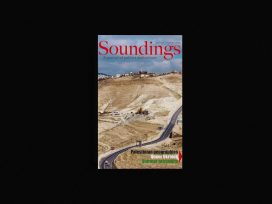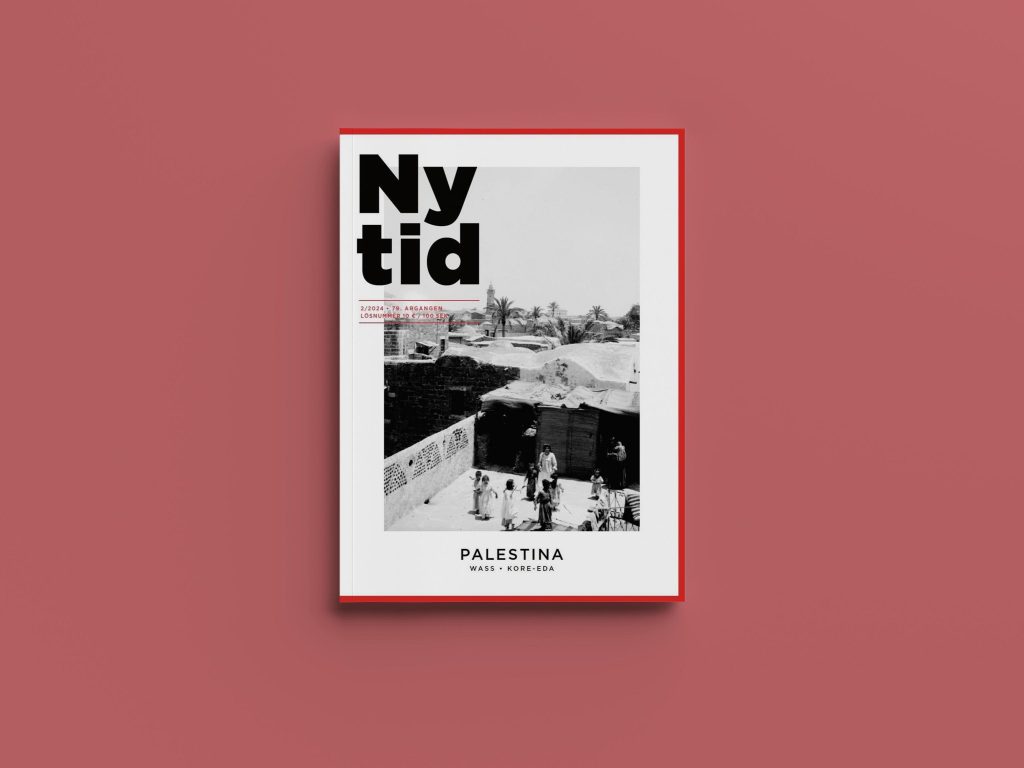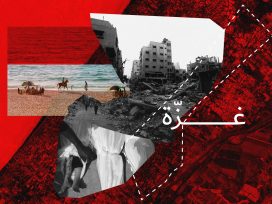
Layers of dispossession
Soundings 87 (2024)
On the geography of Israeli settler colonialism; queer perspectives on the war in Ukraine; the experiences of Afghan ‘returnees’; and the familiar pattern of UK Labourism.
Finno-Swedish perspectives on Israel–Palestine: why Tablet’s treatment of poet Refaat Alareer belongs to a bigger story about criticism and war; how women’s football in the OPTs is carrying on regardless; and Israeli writer Mati Shemoelof on the disappearing possibility for peace.
In Ny Tid, Otto Ekman writes on the murder of Refaat Alareer, the Palestinian poet who together with his brother Salah, nephew Mohamed, sister Asmaa and her three children Alaa, Yahia and Mohamed, were killed when an Israeli missile struck Saleh’s house on 6 December.
All the signs suggest that the intention was to kill Refaat.
Afterwards, Tablet Magazine published a derisory piece somewhere between obituary, hatchet-job and propaganda. The review, argues Ekman, symbolizes how the conflict is being fought on multiple fronts: locally and internationally, on the ground, online and in conventional media.
But ‘unsubstantiated Hamas-labelling and general slandering of dead Palestinians is unfortunately not new in western media, and wasn’t before 7 October.’
The Tablet’s dealing with the death of Alereer touches on the discussion of literary quality in a wider sense, writes Ekman. Shrayer’s review symbolizes how literature, poetry and critique will always be used to kick an enemy when they are down.
 Women kicking against the odds
Women kicking against the oddsDario Antonelli calls up Leen Qattawi, coach of Ramallah’s women’s football team. Antonelli visited the team, one of the best in the Palestinian women’s league, a year ago. If the situation was difficult then, it is even more so now.
After 7 October the men’s league was suspended with immediate effect. But women’s football has carried on regardless. Unlike the men’s team, women’s football in Palestine is not affiliated to FIFA, which means is free to regulate when the season starts and ends. That has allowed teams to adapt to the new circumstances.
Qattawi has four players currently in the Qalandia camp, a refugee camp near Ramallah, where the Israeli army carries out brutal raids. Football will have to come second, although Qattawi knows that it’s fundamental to the wellbeing of all the players in the team.
Her role has changed since 7 October. She feels responsible, as a coach but also as a person. ‘What happens in Gaza also affects the West Bank; we belong to the same people and live under the same brutal occupation,’ she explains. ‘It’s difficult to organize training sessions. The mental health of the players is suffering and it’s hard for young people to deal with all the difficulties they face; their peers in Gaza are being killed or threatened.’
‘I have no “I told you so” in me. I anticipated it, yet I couldn’t foresee any of this.’ Berlin-based Israeli writer Mati Shemoelof writes about the days following the attack on 7 October, and the Israeli reaction.
Shemoelof calls his mother in Haifa and tries to explain that not all Palestinians support Hamas. She doesn’t understand. ‘They aren’t human’ she says. This might not be a time for rationality, he thinks, she has been glued to the TV all day, worrying about the hostages and their families. In an instagram post, he writes that despite the terror, destruction and enormous loss, he hasn’t lost hope in Jewish and Palestinian coexistence. A relative of his answers that he should be ashamed.
‘I felt alone and lost. I am not in Israel, maybe I can’t imagine the situation. But again, I am not unfamiliar with this kind of event.’
Shemoelof grew up in Haifa, once a cosmopolitan and multinational city with a Palestinian majority. Shemoelof’s grandfather fled from growing antisemitism in Iran in the late nineteenth century. He was a Jewish clothing retailer and carried on the family business to Shemoelof’s father, who spoke Persian, Yiddish, Arabic, Hebrew and English. ‘But this kind of life has long since ceased in the Middle East.’.
At university, as the Hezbollah missiles fell on Haifa, Shemoelof started reading about Palestinian civil rights movements such as Musawa and Adalah and began to understand the other narrative: the Palestinian one.
Moving to Berlin brought new friendships that only distance from home could enable. He met a Gazan for the first time and began playing backgammon with him regularly. ‘Will he still want to play with me now?’ He also befriended a man who once fought for Hezbollah, which Shemelou faced as an Israeli soldier. Can these friendships survive this current war?
‘I tell my partner that the possibility of peace between Palestinians and Israelis has been lost. She cries and says: “Don’t tell me that it’s never going to happen.” And I cry with her.’
Published 22 March 2024
Original in English
First published by Eurozine
© Eurozine
PDF/PRINTSubscribe to know what’s worth thinking about.

On the geography of Israeli settler colonialism; queer perspectives on the war in Ukraine; the experiences of Afghan ‘returnees’; and the familiar pattern of UK Labourism.

Israel has imposed different forms of settler colonialism across the map of historic Palestine, but nothing can be taken for granted. The refugee camp is itself a spatialization of a political demand, a space of waiting for an eventual return.